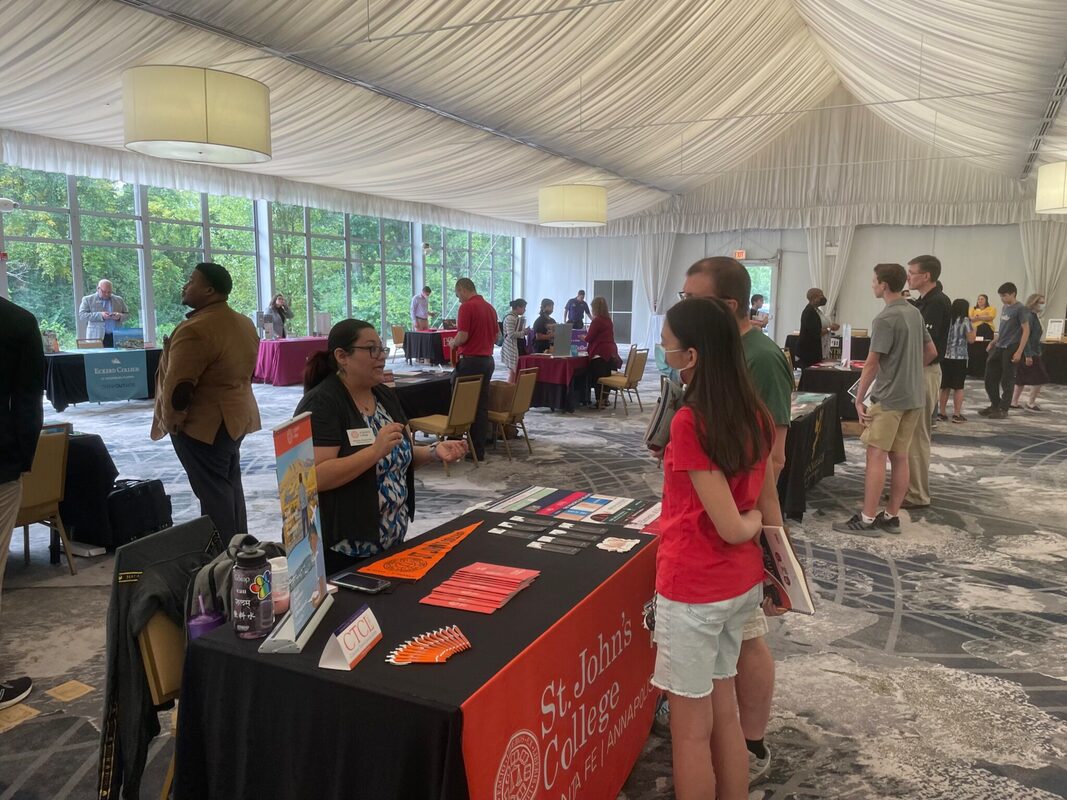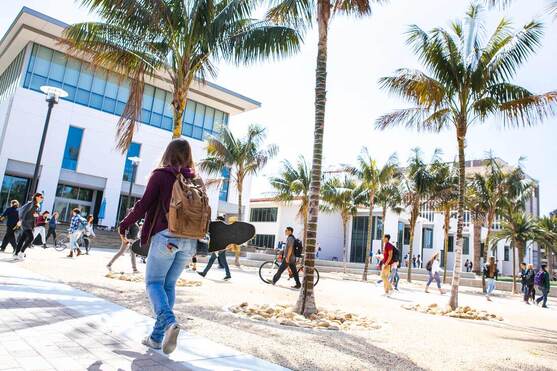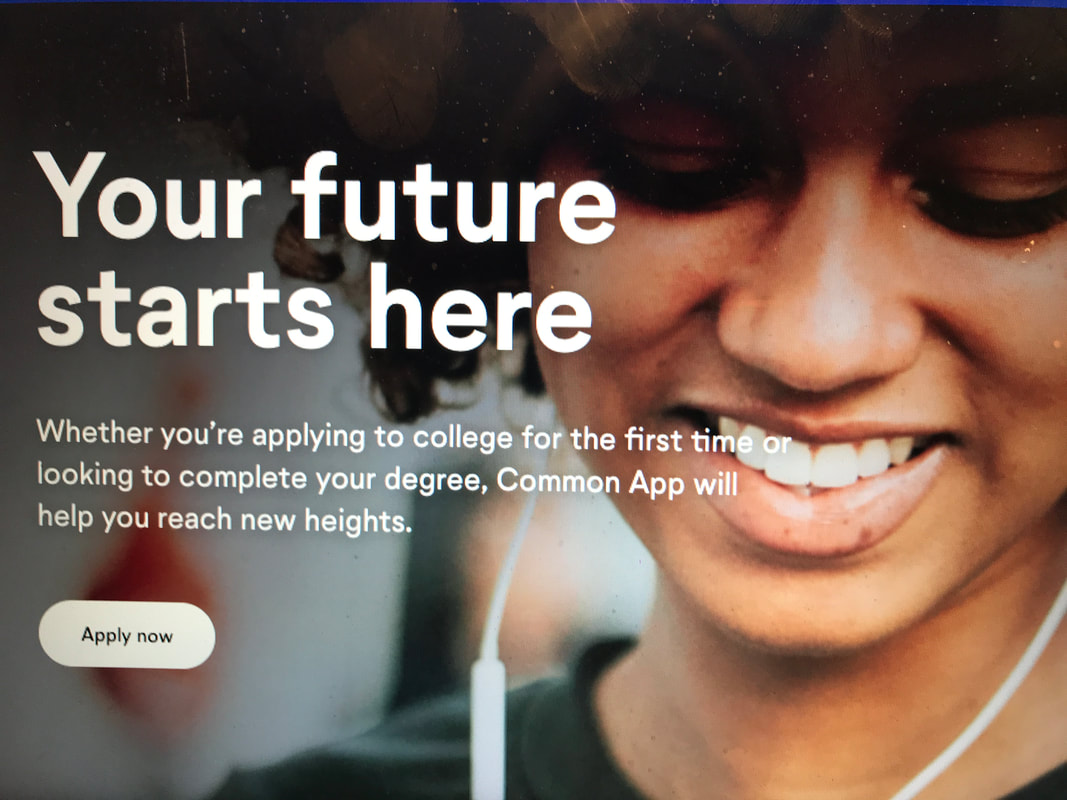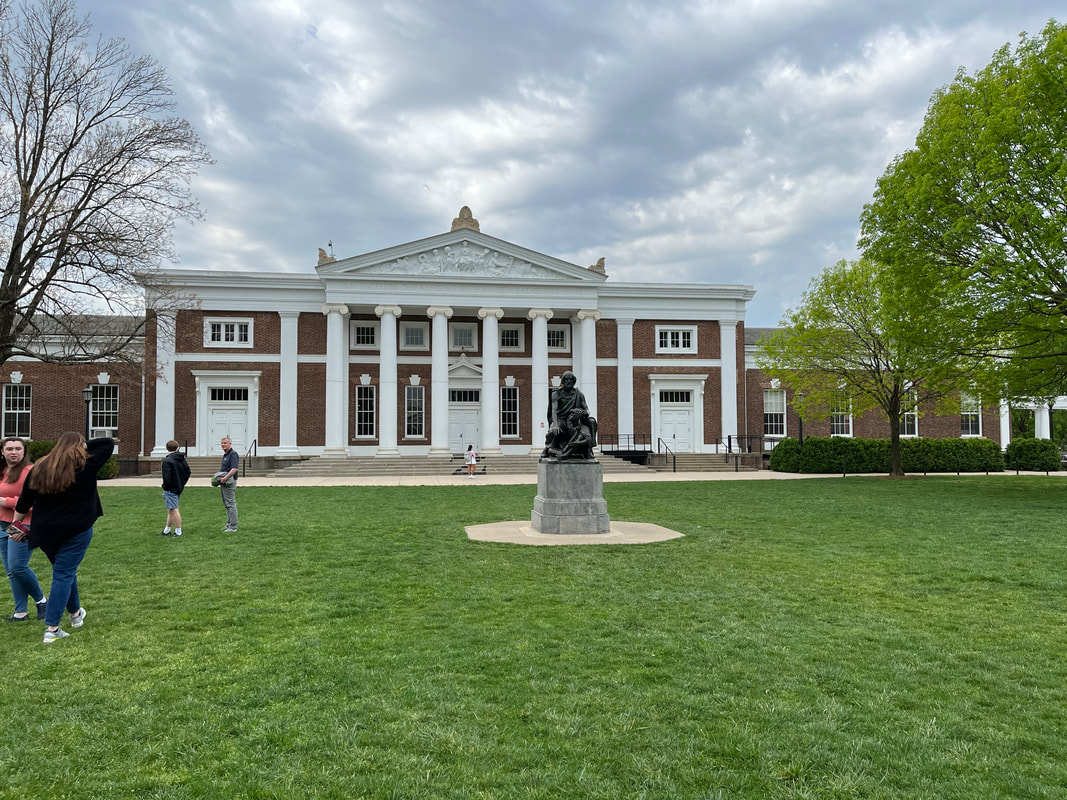|
The picture above is of UCSB, my alma mater. There have been a lot of changes since my 3.65 GPA got me admitted. Every year admission to the UCs becomes more selective, the uncapped GPA for UCSB is now a staggering 4.5. As I endeavor to explain the new reality, parents look at me in disbelief, thinking I must be exaggerating. Nowadays, GPA is only one consideration. Rigor comes next. Is the student challenging themselves in the context of their school, is the way the UCs phrase it. To get into Berkeley or UCLA, most students need around 28 semesters of honors or AP classes. Another factor in the comprehensive review is whether a student has demonstrated outstanding performance in one or more areas. However, not all UCs are equally selective. UC Merced is still accessible to most students, with an average GPA of 3.48 - 4.08 and a 88.3% acceptance rate.
0 Comments
 I just received this announcement today. The CTCLs are a group of liberal arts that offer a transformative education to undergraduate students. 2023 marks the 25th year that CTCL has offered a national series of information sessions and college fairs for students, parents and counselors featuring the colleges and universities that inspired the book, Colleges That Change Lives.Each program opens with a 30-minute presentation on the student-centered college search, the value of the liberal arts, and an overview of what makes this collection of schools distinctly different. After the opening presentation, attendees are invited to attend a 30-minute financial aid workshop and a 90-minute college fair. The fair provides students, families, and college access professionals with an opportunity to connect directly with admission officers from the CTCL member schools. Join us for the 2023 programs: March 11 | Boston, MA March 12 | New York City, NY March 13 | Washington, DC Charter Schools Program March 13 | Washington, DC Counselors Roundtable March 13 | Washington, DC March 14 | Charlotte, NC March 15 | Atlanta, GA July 29 | San Diego, CA July 30| Los Angeles, CA July 31 | San Jose, CA August 1 | San Francisco, CA August 2 | Seattle, WA August 3 | Seattle, WA Counselors Roundtable August 3 | Portland, OR August 12 | Houston, TX August 12 | Austin, TX August 13 | Dallas, TX August 14 | Chicago, IL August 15 | St. Paul, MN August 16 | Denver, CO August 17 | Nashville, TN The teenage years are known for their emotional volatility, but it feels like it's getting worse. This month, several students have come into my office, and, as we discuss topics for their Common Application essay, tears begin to slowly roll down their faces. These students are not crying because of college application pressures, those are still to come, they are weeping because they eat lunch alone everyday, they aren't accomplishing what they hoped to academically, they have sacrificed too much to excel at a sport, their mom and sister fight a lot, they feel alienated from their friends, their parents, their world.
I do my best to prop them up, assure them that life will get better. We talk about their dreams and all the wonderful times ahead. But my heart aches for everyone of them, why is life so difficult for these students? We have all read about the mental health crisis our teens are experiencing. The Surgeon General, Vivek Murthy issued a warning in February that social media is a main contributor to depression, anxiety, and other mental health problems, according to an NBC News report. We know about Congress' attempts to regulate social media, which have failed repeatedly. According to Senator Amy Klobuchar, the only way things are going to change with social media is when Americans decide they have had enough. Recently the American Psychological Association issued recommendations for guiding teen's use of social media. I wish it had had the courage to recommend that parents prohibit social media use completely. Then perhaps students could reconnect, leave their bedrooms, and participate in life fully and joyously. Hello Parents! IT IS TIME to pay the tuition bill! If you want to pay via payment plan - look on the college website ASAP! Most college payment plans will begin in July. This is a great option if you are paying the semester in full or in part with cash. If you are paying via 529 funds- once you receive the bill and know the exact amount, you can request the funds from your 529 company. You can have the funds sent to you or directly to the school. If you receive the funds, remember to pay the college with the exact amount you received and keep all documentation. If paying for a computer, books, etc., keep the receipts. Requests usually take two weeks. Most of the time your student should take their federal student loan - if concerned about this please reach out to me for a discussion. Your student needs to ‘accept’ (check the box) that they want the loan(s) subsidized (no interest) and unsubsidized (interest accrues). They then need to complete Financial Literacy and sign the MPN (master promissory note). Once completed the loans will be applied to the tuition bill, so compete ASAP. The Financial Literacy and MPN are all set for four years. Each semester the student will need to accept the loans. Freshman year will be $5500 (less fees) or $2750 per semester, sophomore year $6500, jr & sr years $7500 each. If there is a need for an education loan for this year, the options are a Federal Direct Parent Plus Loan or a private lender loan. The current fixed interest rate for the PPL is 8.05% with a fee of 4.23%. You can apply for the loan with your FSA ID on the studentaid.gov website. If you are interested in applying for a private loan, your interest rate will be determined by your credit score, debt-income ratio and other factors. Here are the lenders I recommend; Try starting with SPARROW - a broker of student loans - remember the rate is not official until completion of the application. Also: Juno Ascent Funding LendKey For more information please schedule a free conversation with me at www.calendly.com/collegedollar or book the one-hour consultation for my 11-point Tuition Bill Review Package where I cover optional costs, FERPA, waivers, loans, and more! Liane Crane, CFSLA - College Funding & Student Loan Advisor Read my recommendations on Financial Aid Packages in FORBES www.TheCollegeDollar.com 5 Things College Applicants Should Know About Using ChatGPT Spread the Knowledge. Share: Curious about ChatGPT and how it might help you apply to college? Here are a few things to keep in mind. Artificial Intelligence (AI) is everywhere — in voice assistants like Amazon’s Alexa, in appliances like smart thermostats and refrigerators, and in ride-sharing apps and self-driving cars, just to name a few examples. Lately, it seems that everyone is talking about OpenAI’s ChatGPT, a tool driven by AI technology that can answer questions and complete an ever-growing range of tasks — including writing essays and poems, suggesting restaurants, writing computer code, and even passing Advanced Placement exams. What is ChatGPT and how does it work? ChatGPT is just one of several large language models or LLMs. According to the website Tech Target, an LLM is “a type of artificial intelligence algorithm that uses deep learning techniques and massively large data sets to understand, summarize, generate, and predict new content.” These tools scan the existing information on the internet (as well as any information provided to them), gather relevant data based on the instructions or questions a user provides, and generate answers by looking for patterns in that data. ChatGPT creates conversational responses by predicting words, sentences, and paragraphs based on the vast amounts of text it was trained on. Can you use ChatGPT to help you apply to college? You may be wondering if AI tools like ChatGPT can help you when applying to college, especially with the process of researching schools. Perhaps you’ve already used it for this purpose. It’s true that ChatGPT can help students find colleges based on different criteria and provide basic facts, information, and data about those colleges. But like any technology, ChatGPT has limitations and we don’t think you should rely exclusively on an AI chatbot to do your college research, build your college list or determine your personal college fit. Although ChatGPT can bring you a large amount of information about colleges, the technology isn’t yet at the point where that information is entirely accurate or consistent. For now, you are better off using it in partnership with reliable tools and resources, including CollegeData. Considering hard, reliable information along with your own experiences and reactions is going to help you make the best decisions about college. Here are a few things to keep in mind when using ChatGPT as you search for colleges and prepare your college applications. 1. ChatGPT Is Not Always Accurate Although ChatGPT’s accuracy is improving, it still gets things wrong and will sometimes respond differently when asked the same question multiple times. Technology reporters have informally calculated ChatGPT’s error rate at around 15 to 20 percent and have also reported on its tendency to “hallucinate” or make things up. When we asked ChatGPT about its capabilities, it admitted that it “may sometimes produce incorrect or nonsensical answers.” While you can ask ChatGPT to estimate your admissions chances at different colleges, or to provide facts about different schools, the information it provides may not always be correct. It’s therefore important to double-check the information you get from ChatGPT with other sources, such as the schools themselves or reliable college tools. CollegeData’s college profiles, College Search, College Chances and Admissions Tracker are resources you can trust. Here’s why: The college profiles feature data provided by over 2,000 colleges and universities. The data is updated annually, compiled and checked by a third-party data provider (Peterson’s) and reviewed by the CollegeData team. You’ll find the most important data about colleges all in one place – even data you might not have thought to look for. College Search utilizes the same fact-checked data you’ll find in the college profiles and can help you find colleges that meet your criteria with a single query. Also, with College Search, you can save your search results. College Chances, which provides an estimate of your chances of admission at different colleges, relies on a single, proprietary algorithm that compares your qualifications with those of freshmen recently enrolled at a college. The algorithm also considers the individual admissions factors considered by the college and how applying early decision or early action may affect your chances. Although College Chances cannot guarantee your admission to your dream school, the estimates it provides are based on data. In addition to estimating your admission chances, the tool also summarizes what you can do to improve your odds. Admissions Tracker can help students gauge their admission chances using data provided by real students who were admitted, waitlisted, deferred or denied at different colleges. Used together, Admissions Tracker and College Chances can help you determine whether a college is a reach, a maybe, or a good bet — and why. 2. ChatGPT Can't Write a Truly Personal College Essay When it comes to writing, ChatGPT is amazing, quickly producing poems, song lyrics, reports and legal arguments. It can also write a decent Common App essay, just not one that is likely to stand out to colleges. At this point, AI-created essays typically lack honest personal anecdotes, emotion, and relatable human insights. “[AI] tends to produce essays that are filled with bland, common wisdom platitudes,” said Bret Devereaux, a lecturer at University of North Carolina at Chapel Hill in Vice magazine. The New York Times recently reported that teachers and college admissions professionals are already pretty good at identifying AI-generated essays. (Take this quiz to see if you can tell which student essays were written by chatbots or humans.) If you are using ChatGPT to complete writing assignments, you might not be able to get away with it for long. The tech industry is already coming up with tools to identify essays written by bots. College professors are pondering different ways to combat AI-generated essays, such as requiring in-person essay exams. Who knows? In the future, college admissions officers may rely more on in-person interviews and less on written essays. 3. ChatGPT Can't Replace Your College Counselor A chatbot may be able to answer general questions about colleges or admission policies, but this isn’t the same thing as getting advice that is tailored to your specific needs from a college admission professional. Whether you’re working with a counselor at your high school or a private counselor, these professionals usually have years of experience working with students, evaluating essays, visiting colleges, talking with admission reps, and keeping up with changing college admission trends. Most college counselors have a wealth of knowledge about different academic programs, financial aid opportunities, and admission requirements as well as a sense of what different colleges may look for in students. Counselors may also be better at suggesting colleges that are potential good fits simply because they know you and have a human understanding of your college goals, your academic abilities and interests, and your unique personality. Chatbots have no concept of what a college is, let alone what it’s like to be a student at one. Similarly, the CollegeData team has been providing college information and advice to students for more than 20 years. The more than 300 articles on our site are researched, written, and fact-checked by real people with years of experience covering college admissions and working with students and counselors. 4. ChatGPT Can't Provide a Real Student's Perspective One of the best ways to learn about different colleges – and about applying to college – is to talk with students who have applied to and attended different schools. ChatGPT may be able to impersonate the voice of a student and may even tell realistic-sounding stories about attending a particular college, but these stories are not real. CollegeData’s Student Stories and Stories from College, on the other hand, feature advice, opinions, and insights from real students attending more than 45 colleges across the country. You’ll find real stories about a wide range of college admissions experiences — including writing Common App essays, applying early decision, getting denied and waitlisted, and navigating financial aid — and what the students learned from these experiences. In Stories from College, students report back about their experiences attending college and adjusting to college life — which provides a sense of what it’s like at their school. 5. ChatGPT is NOT a Replacement for Doing Your Own College Research Researching and applying to colleges is hard work, and AI-powered tools like ChatGPT may certainly help. But while these tools can be amazing, remember that they don’t understand the college qualities that are important to you or how to evaluate the extent to which a college has those qualities. They also can’t tell you how a campus really looks or feels from your point of view. Chatbots can’t gauge how happy or friendly the students on campus seem or clue you in to the academic and social opportunities you’ll find exciting or enriching. Do the work yourself Fact-finding is only the beginning of your college application experience. Researching colleges requires several activities — looking carefully at college websites, attending college presentations, talking with current students and faculty, considering advice from parents and counselors, and visiting campuses. Most of all, making wise decisions about college requires paying attention to your own personal reactions and feelings about all the information you receive and consider. ChatGPT, unfortunately, can’t help you evaluate colleges based on your own feelings, preferences, and needs — at least not yet. Until then, you’re going to have to do the hard work of researching colleges yourself. But this process will help you identify the qualities that matter most to you and see important differences between schools. One of the keys to good decision making is basing your decisions on accurate information and your own reaction to it, and asking the right questions. Doing this work will also enable you to articulate — with your own voice and from your own heart — why a college is a good fit for you and what unique things you may bring to that college. |
Masland Educational Consulting
|





 RSS Feed
RSS Feed
